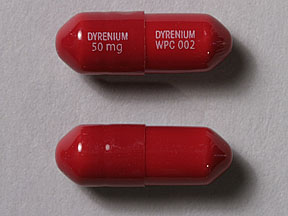
Triamterene Coupons & Savings Card – Discount Prices from $246.75
Generic for: Dyrenium
My prescription
Edit
50MG, Triamterene (90 Capsules)
Select pharmacy

CVS
$331.05
COUPON PRICE
Walgreens
$246.75
COUPON PRICE
Albertsons
$636.08
COUPON PRICE
Walmart
$802.33
COUPON PRICETriamterene savings card
Show this card to your pharmacist
Walgreens
$246.75
BIN
ID
PCN
GRP
015995
LHKPW537112
GDC
DR33
Powered by
More prescriptions for heart failure
More prescriptions for heart failure
Price history for Dyrenium (brand) & Triamterene (generic)
90 Capsules, 50MG
Average retail price for Dyrenium
Average retail price for Triamterene
Average SaveHealth price for Triamterene
Our price history data is based on aggregated prescription data collected from participating pharmacies in America. Our prescription data updates daily to reflect the latest price changes. If you notice a missing data point, it means there wasn't sufficient data available to generate a monetary value for that date.
We analyzed Triamterene prices for (50MG, 90 Capsules) over the last 12 months. The average retail price was $971.11, while the average price using the SaveHealth discount card was $450.32. That's a savings of approximately 53.63% when using our Triamterene coupon.
Compared to the generic version, Dyrenium had an average price of $1759.97 over the same time period. With the SaveHealth savings card, Triamterene is 74.41% cheaper on average than Dyrenium.
*Retail prices are based on pharmacy claims data, and may not be accurate when we don't have enough claims.
Triamterene dosage forms
Dosage Quantity Price from Per unit 50MG 90 Capsules $369.39 $4.10 50MG 100 Capsules $407.51 $4.08 100MG 30 Capsules $132.66 $4.42 100MG 100 Capsules $399.51 $4.00
| Dosage | Quantity | Price from | Per unit |
|---|---|---|---|
| 50MG | 90 Capsules | $369.39 | $4.10 |
| 50MG | 100 Capsules | $407.51 | $4.08 |
| 100MG | 30 Capsules | $132.66 | $4.42 |
| 100MG | 100 Capsules | $399.51 | $4.00 |
